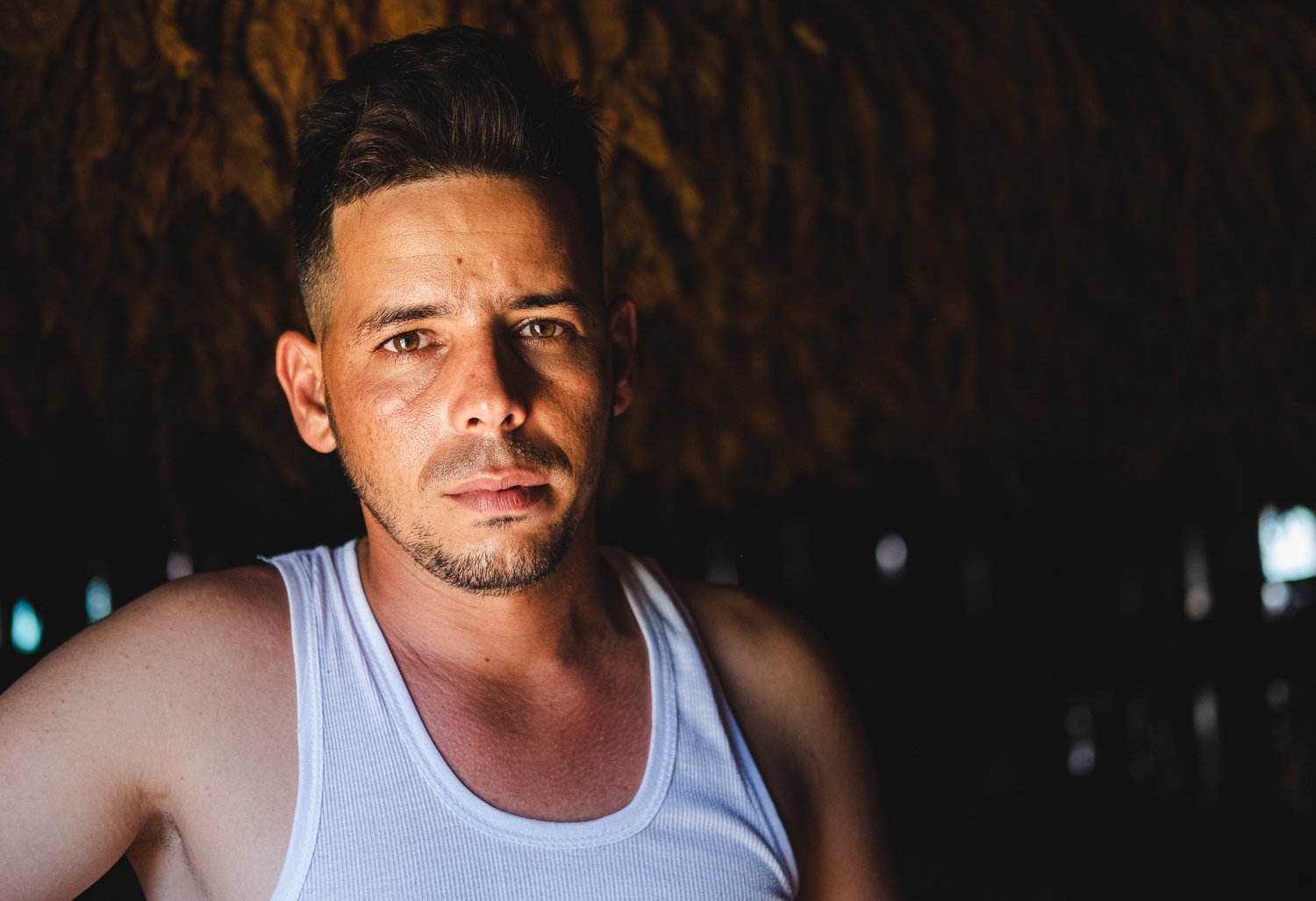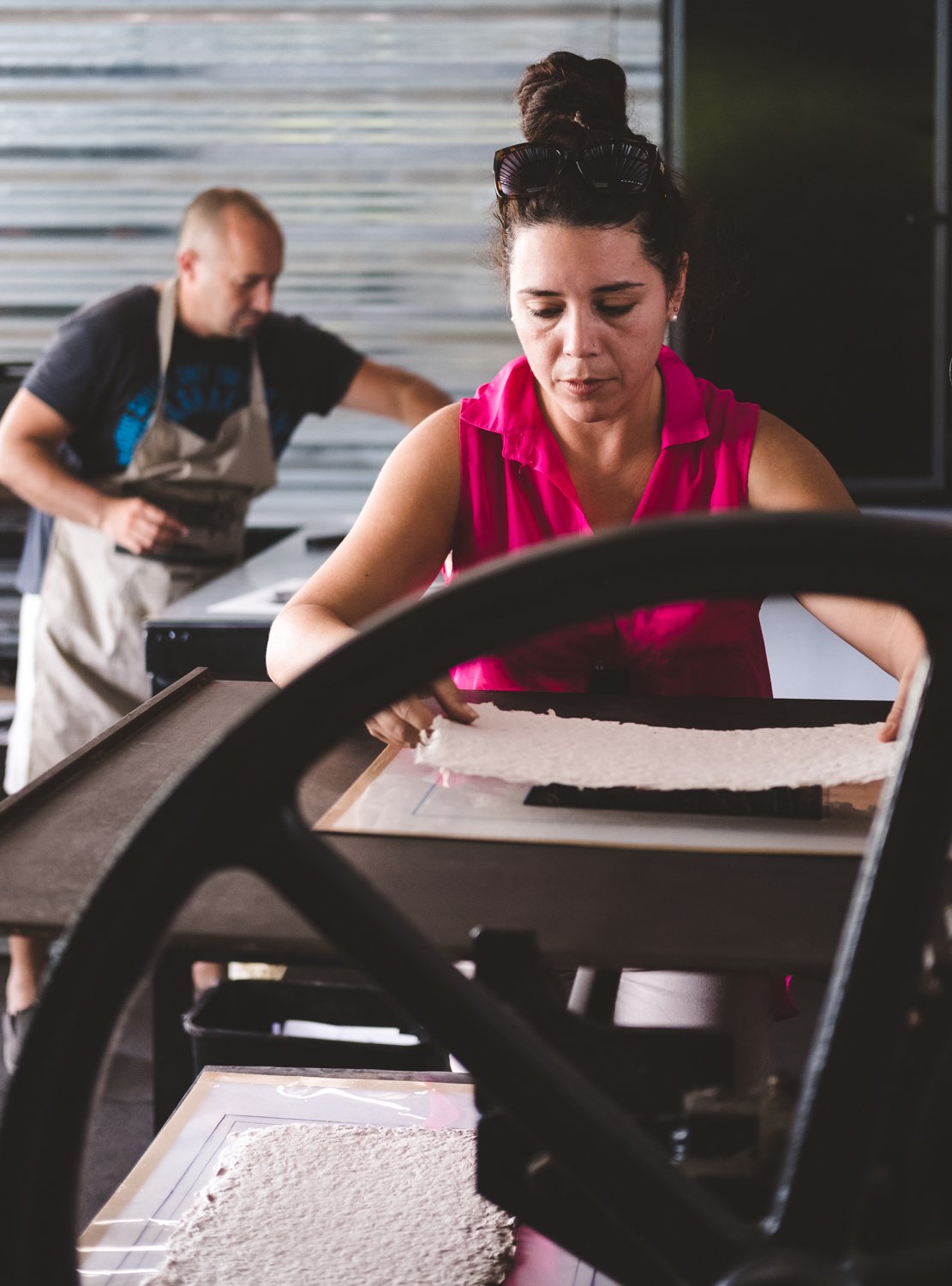C U B A
I could post this portrait of a Cuban man on Instagram and most people would briefly pause their scroll to "like" the quintessential Cuban-ness of it all; the sunhat, the saturation, the cigar, the story we tell... The truth is, this man is in hundreds of photos hashtagging around the internet. He sits outside the brightly colored buildings of Trinidad with an unlit cigar posing for the price of whatever leftover change is in your pockets. And how can we tourists resist? It's just so characteristically Cuba. And my, how everyone back home will marvel.
And in some ways this is Cuba. Everywhere we went we were (literally) sold the romantic façade of rum and cigars and old shiny cars. Most tourists were thrilled to play along, confirming their biases by only looking for the answers they already knew, looking away from anything challenging the narrative. Here, let me show you the soul of Cuba I found from this perfectly placed old man in the blue shirt in front of the blue door. #Cuba
But, by scoffing at the tourist traps, am I not also just confirming my own bias by becoming blind to the version of the story I don't want to see?
Cuba, like everywhere and everything and everyone else, has so much to its story. Maybe it's not about one vs. other, curation vs. reality, true vs. false. Maybe it's about a million conflicting complexities without a single answer.
And maybe, just maybe, this version of the story I'm telling only has to be about blue and yellow and texture... and nothing, but everything, more.
In Viñales we took a private horseback riding tour through the lush Valley of Silence to a working tobacco plantation.
At the farm, there were a few gregarious guides that showed us various parts of the 'real' cowboy lifestyle, subtly (and not so subtly) trying to sell us on various handcrafted cigars, rum, coffee, and honey. They knew, by the tour we booked, we were the kind of people who liked a more intimate and authentic look into things, and they played their parts very well.
But this guide was more reserved. He showed us the barn they dry tobacco leaves in and dutifully hand-rolled a cigar for us. He wasn't cold or unfriendly, just worn out. At one point he mentioned that although he did work in the fields on some days, he didn't on days they had tours because his clothes would get dirty.
I wish I could have talked to him more and learned the real story of his life, not the one he has to tell.
Under the hood of any classic car in Cuba will reveal a Frankenstein's monster of ingenuity and resourcefulness. A Ford part here, a Toyota part there, and maybe a bit of metal and string wrapped around a plastic bottle until something better is found later. It's unbelievably expensive to buy a car for the average Cuban, so if they are lucky enough to acquire one somehow, they will keep it running as long as physically possible... and probably much longer after that.
For Americans to legally travel to Cuba, we must go under a “support for the Cuban people” visa. This means avoiding any state-sponsored hotels and activities. Despite the questionable logistics of this in a communist country, it gave us excellent opportunities to meet locals by forcing us off the usually-traveled path.
We were lucky enough to meet Octavio and his wife Beatriz by booking a print-making class with them at their home and art studio outside Havana. Octavio is a profoundly talented artist, and Beatriz keeps them operating as both the brains of the business and the English translator.
What they do is truly remarkable, especially when you put it in perspective. Take paper, for example. This basic necessity for print-making can be expensive, inconsistent, and completely absent from suppliers in Cuba. Without paper, Octavio wouldn’t be able to run the classes that help buy the supplies for his art, so resourceful Beatriz found a local craftsman who makes handmade paper out of recycled bits they can use for their students.












